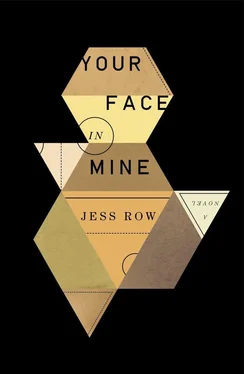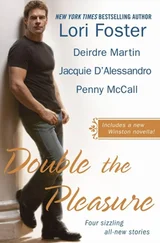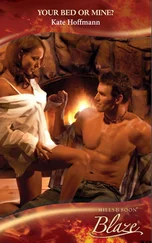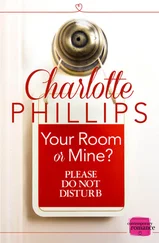Tell her I’m really looking forward to it, I said.
Yeah. I’m not sure that’ll help.
We’re near the end now, after a sermon that must have lasted forty-five minutes; I followed the first half, a reading of the parable of the talents as a message about financial security and self-sufficiency, but lost the thread somewhere in Paul’s letter to the Philippians, and even the woman next to me, who had punctuated every other sentence with Mmm-hmmm and Tell it and Yes, Lord , lowered her chin and began to list against me toward the end. And then sprang awake, and up, with the first chords of “Forever Praising Him,” the burbling of the fretless bass and the snap of the electric snare.
Here’s the thing: I don’t follow the rituals, I’m shaky on the good news, but I know the music. Contemporary gospel is just a hair away from Eighties pop R&B, and if you grew up, like I did, with Whitney Houston, Janet Jackson, El DeBarge, Jermaine Stewart— we don’t have to take our clothes off to have a good time —then the sound of this music, minus the choral singing, the multiplied voices, is the sound of MTV in 1986, all squiggly neon lights, shoulder pads, pink lipstick. It’s The Cosby Show . Irrepressible happiness. Teflon happiness. And I don’t mean that in a bad way.
At several points along the way, in fact, I’ve been wiping tears out of my eyes.
I get this way in churches. And synagogues. Partly because I associate them with funerals and weddings. But mostly because, like many areligious people, I secretly love the idea of church. Human beings need rituals. I took an anthropology of religion course in college — the professor was a lapsed seminarian from Ghana — and I remember him saying, we’re only a hundred years removed from an absolute reliance on sacredness, at most. That’s a hundred years versus a hundred thousand years of human development. Sacredness doesn’t disappear; it migrates into the realm of the absurd. Going to the gym. Putting on makeup. Collecting wine. Riding a speedboat.
I’m staring at the back of Martin’s neck.
If you had nothing — if you started from nothing — and came upon this , a fully formed world, based on the idea of not enduring, not even resisting, but actually refusing pain, not sitting and waiting for the spirit but actually embodying it, loudly and clearly, every week, whether you feel like it or not—
It could be anyone.
Young man, the woman next to me says again, when everyone is standing, embracing, collecting hats and purses, I could use a hand getting up. She holds out her hand, I take it, and her grip locks against mine; under the loose, ashy skin, speckled with liver spots, her frame is rigid, the joints welded by sheer determination. Help me with something, she says, reaching into her handbag and producing a smartphone in a pink rubber case. Check and see if there’s a text message on there, would you do that for me? My grandniece just had a baby and said she was sending me a picture. I can’t read the buttons. All I do is, people call me and I swipe the thing and talk.
I open the phone, and indeed, there’s a text from Kimmy, grandma sylvie we luv u heres the newest member of the family thomas javon turner, and a picture of a swaddled newborn in someone’s arms, with pasty black hair, narrow cheeks, and puzzled green eyes.
Oh my, Sylvie says, when I hand back the phone.
Looks like my little one, I’m about to say. Because he does look a little like Meimei: that same grayish skin, and the wide, startled look, melatonin and pupils meeting daylight for the first time. But that would be a weird thing to say. A bad omen. Congratulations, I say, instead. That’s a beautiful baby.
Sister Sylvie, Martin says, I need my friend back now, if you don’t mind. But she’s already turned away, under the spell of life.
• • •
It was Alan’s decision, Martin says. He was the one who found the marker. He was the first one to do it. I know he wrote that it was consensus. It wasn’t. I wasn’t comfortable with it.
Slowly, pensively, with a rounded, overfed gait, we’re crossing Taylor Park, which leads from Martin’s neighborhood to the far side of the Maryland Institute campus and the expressway. For lunch Robin made blackened snapper, quinoa salad, and miniature quiches with kale and bacon. It’s the one decent meal I’ve had in a week. There are chickadees and killdeer skittering overhead and the trees are just furred with green. A moment of fragrant life, life springing underfoot.
Then why didn’t you say anything?
What was I supposed to say? I just wanted to play the show. Maybe with a dedication to the victims. Something neutral.
That’s your big realization? That you felt nothing ? During the riots, when the rest of us were so outraged?
You want to know what it felt like? Think about it. Think about everything I’ve told you. Forget who you thought I was. Can you imagine the sheer oddness that I was feeling, the sense of not being where I was supposed to be? And where was I supposed to be? That’s what I’m talking about. I was stunned. I felt sick. What I did not feel was some righteous sense of us and them . I felt — you want to know what it was like? Remember that ectoplasm thing I was telling you about? So this was like that — like being an egg. Someone picks up an egg and taps it on the edge of a bowl. Tap, tap, tap. Testing. How hard is it going to be? How much force is required, to break that egg? Every egg is a little different. Too hard, and you spill it everywhere. Too soft, and it’ll take you forever. There’s a thrill in that moment of testing . You want to know what it was like? It was exciting . It was stimulating . You think that’s sick? That’s how it was. I feel my insides coming out and I didn’t know whether I was supposed to cover up the wound or just let go. Was I supposed to be the guy with the brick, or the guy on the ground?
Those were the only alternatives?
In that moment, yes.
I don’t think so. I don’t agree.
Oh, come on, he says. Remember , Kelly. Put yourself back in that moment. He spins around and takes a snap at me, one hand half fisted, the other slapping his shoulder. You’re telling me that there wasn’t part of you that was saying, don’t hurt me! Don’t hurt me! It wasn’t my fault! I’m not talking about logic. I’m talking about brute visceral response. You were Reginald Denny. How could you not be?
How would you know?
I was there. You were crushed . You and Alan both. Disappointed . In that moment there was no subtlety, no nuance, right? Savagery. Primitivism. The great American nightmare. Help! There’s a big black man with a rock!
And you would have been Reginald Denny, too.
This is what I’m talking about! Do you see it now? He bends over and palms an imaginary rock, tests its weight, squints at me, measuring me as a target. I could feel — I could feel my own hand with the brick and my own head as the target. Total cognitive dissonance. It was like I was having a stroke. And you know what I did? Did you ever wonder where I was, when the fight was going on? I ran . Unplugged my bass and hopped off the stage and got the heck out of there. I wound up in some dining hall, still carrying the bass. Reading the flyers, trying to look nonchalant. Then I came back and found you. By that time the police were cleaning up. I pretended I’d gone for help. Not my most courageous moment.
We weren’t supposed to be courageous, I say. We were ambushed.
Oh, come on, he says. Look, I loved Alan as much as anyone. But he was asking for it. I mean, this was Hopkins . He wanted to see what it was like to be Abbie Hoffman. He thought it was funny. Don’t you remember, Kelly, how happy he was? He kept flipping down the mirror in the car, trying to get a better look at his black eye. Laughing the whole time. Remember how he insisted we all take pictures afterward? And then he wrote that piece for the City Paper . It was his little excursion into the life of a provocateur.
Читать дальше












